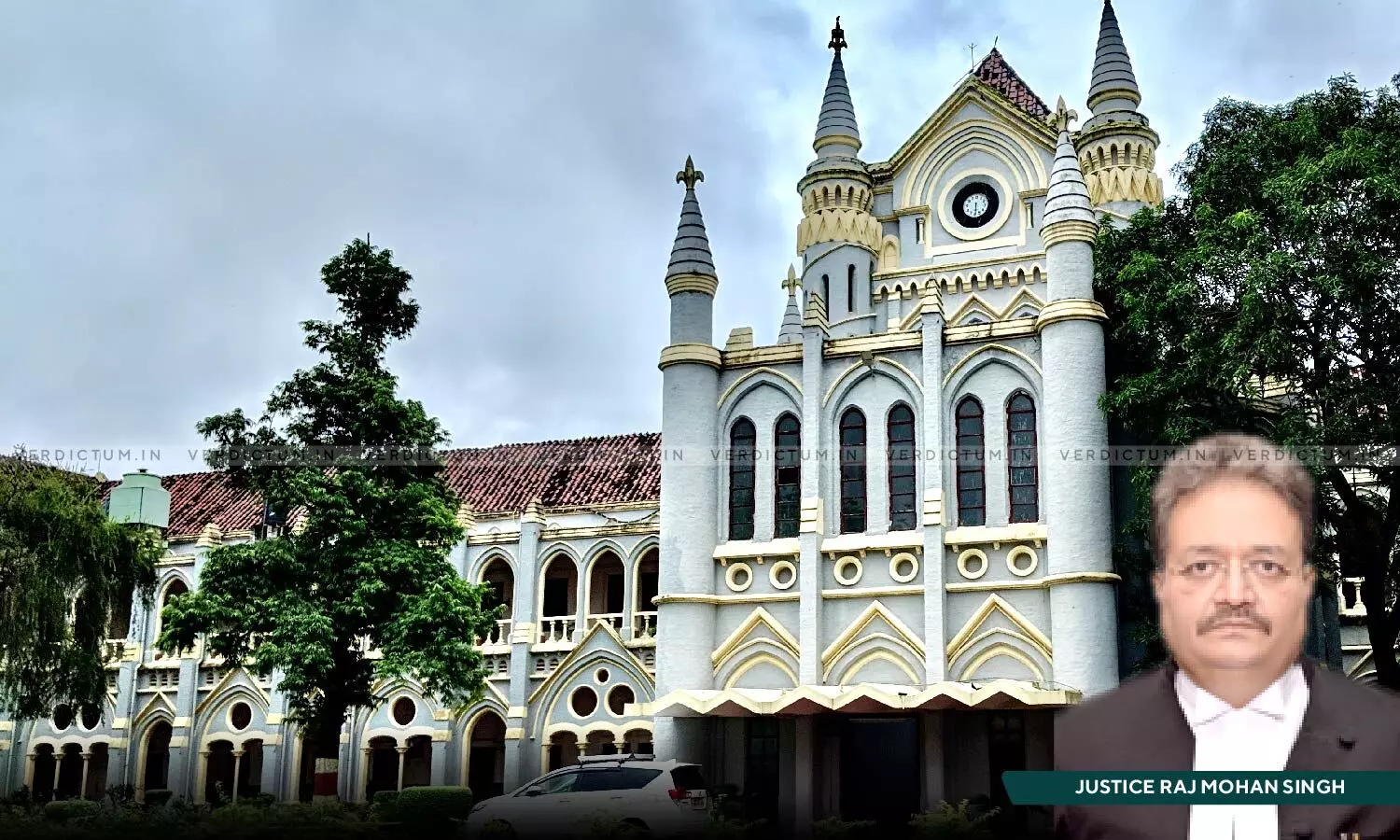
Individual Right Must Be Given Preference: Madhya Pradesh HC Allows Liver Transplantation Of Donor Whose Wife Objected To It
 |
|The Madhya Pradesh High Court permitted liver transplantation of a donor whose wife objected to the same, saying that the individual right of a person must be given preference.
The Jabalpur Bench was dealing with a writ petition seeking direction to a hospital to proceed with the transplantation of liver, subject to the satisfaction of medical fitness of the donor.
A Single Bench of Justice Raj Mohan Singh observed, “… the objection raised by the respondent No.4 may be based on some apprehension in the contest of societal norms of keeping her Suhag healthy, alive and free from any risk, but if the individual right of the petitioner No.1 is pitted against such a perception of the respondent No.4, then the individual right of the petitioner No.1 has to be given preference. Even though, as against the decision of the authorization committee, an appeal is provided under Section 17 of the Organs Transplantation Act, 1994, but in the instant case, the case of the petitioners is not covered under Rules 7 and 19 Organs Transplantation Rules, 2014, therefore, no remedy is available with the petitioners. Even otherwise, keeping in view the medical conditions of the patient/brother of the petitioner No.1, alternative remedy, if any, would not be efficacious enough to answer the claim of the parties.”
Advocate Prakash Upadhyay represented the petitioners while Panel Lawyer Swatanta Pandey and Advocate S. Rairada represented the respondents.
In this case, the petition was preferred against the letter/communication issued by the hospital, refusing to perform the liver transplant of a man on account of objection raised by his wife, ignoring the fact that he was the real brother of the patient. As per Section 3 of the Organs Transplantation Act, 1994 and Rule 18 of the Organs Transplantation Rules, 2014, the said donor was competent to take a decision to give consent for removal/donation of part of his liver tissue.
The consent of the donor’s wife was not at all required as per the above provisions/rules. The donor’s brother was in critical stage of health and required urgent transplantation of liver to save his life. The donor had, therefore, came forward to donate part of his liver tissue to the patient voluntarily, without any misrepresentation or due influence. Under Section 3 of 1994 Act, the authority for removal of human organs or tissues or both is the hospital where any donor may authorize the removal before his death, of any (human organ or tissue or both) of his body for therapeutic purposes.
The High Court after considering the submissions of the parties said, “In the present case, Rule 18 of the Organs Transplantation Rules, 2014 is applicable, as the donor is brother of the patient and the proposed transplant of liver is between the brothers i.e. near related genetically. After fulfillment of all the necessary compliance as per the procedure, the needful in the context of transplant has not been carried out due to the reasons that the respondent No.4, who is the wife of the petitioner No.1 has not given her consent and she is not willing for the surgery of the donor. The patient/brother of the petitioner No.1 and husband of the petitioner No.2 has history of multiple hospital admissions in last 6 months.”
The main issue that arose for consideration before the court was whether the consent of donor’s wife was required for living donor liver transplant or not. The Court in this regard said that the societal norms cannot compel individual behaviour to be in consonance with social expectations unless, the same is mandated through the jus scriptum.
“… the petitioner No.1, being master of his own choice cannot be put to intrusive action by anyone, including his wife. The caveat put by his wife cannot be taken to be a rider on the right of the petitioner No.1. The objection by the wife of the petitioner No.1 may be a societal norm to keep her marital status healthy and alive but by undergoing transplant of liver, the respondent No.4 cannot forsee that in every likelihood, her husband may die”, it further noted.
The Court also noted that the liver is such an organ, which glows with the passage of time and in these days of medical advancement, organ donations are being successfully operated and transplanted in other bodies.
“The perception of the respondent No.4 cannot be over weighed over and above the desire of the petitioner No.1, who intends to save the life of his brother by donating his part of the liver. In the facts and circumstances of the case, the act of the petitioner No.1 cannot be held to be illegal as per Albert Camus, a French Philosopher, Author, and a Nobel Laureate in Literature. “The only way to deal with an unfree world is to become so absolutely free that your very existence is an act of rebellion.” The aforesaid words, if read in conjection with the facts and circumstances of the case, would lead to the conclusion that the act of the petitioner No.1 in donating his liver to his ailing brother does not become an illegality, warranting intrusive action by the State”, it observed.
The Court emphasised that India falls into a category that being a liberal democracy, where a man is permitted to act in any manner he pleases, where such an act is not prohibited under the law, irrespective of the fact that his act might be seen as galling by the majority.
Accordingly, the High Court allowed the petition and permitted liver transplantation.
Cause Title- Vikas Agrawal & Anr. v. State of Madhya Pradesh & Ors.